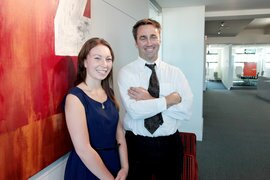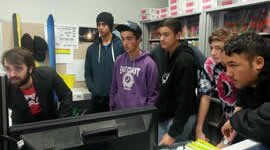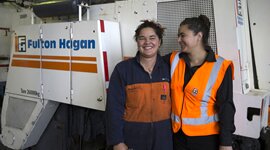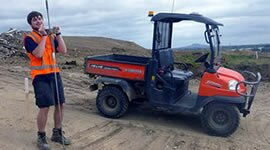
Raising awareness of Temporary Works Engineering
The scaffolding industry is trying to raise awareness of its urgent need for temporary works engineers and careers in this field. Many students, graduates and even experienced engineers aren’t aware of the opportunities and demand in temporary works... LINK >
Studying at WelTec: ‘Theory without practice is empty, and practice without theory is blind’
When Allie decided to study engineering, she knew how she wanted to learn. “I wanted to study at a place where teachers devote time to each student. I also wanted to build on my strengths – I like to work practically and collaboratively. ITPs like W... LINK >
Engineering Industry Big Day Out: Connecting industry and schools
An Engineering Industry Big Day Out this year helped connect industry and schools in Gisborne. LINK >
Other Case Studies
Initiative encourages Māori career progression
''Fulton Hogan’s commitment to encouraging career development and leadership amongst its Māori workforce has led to the establishment of a role specifically designed to implement change. Read about the great work of their Kaitiaki - Māori Engagement... LINK >
Why offer a scholarship? Here's some good reasons
Scholarships provide support to tertiary students, are a promotional tool and a recruitment strategy. We checked in with consulting firm Fraser Thomas to learn about how scholarships work for them. Could they also work for you? LINK >
Internships: a win-win for students and your organisation
The great thing about internships is that they’re versatile – you can make them work for you. Done well, it's a win-win situation. The main point is to provide the recipient with experience, along with training and mentoring. For the company, intern... LINK >
 |
 |
Engineering Industry Big Day Out: Connecting industry and schools
An Engineering Industry Big Day Out this year helped connect industry and schools, through student visits to different types of engineering-based workplaces. The initiative was driven by a local skills shortage and involved eight Gisborne businesses, with students from as far as Te Araroa and Wairoa visiting their sites.
Students, teachers and careers advisers learnt about engineering pathways, career opportunities and engineering employers in the region. The companies – Cedenco, Eastland Network, LeaderBrand, McCann’ics, Opus International Consultants, Pultron Composites, Universal Engineering and White Pointer Boats – discussed what they do, their engineering requirements and the sorts of skills they look for.
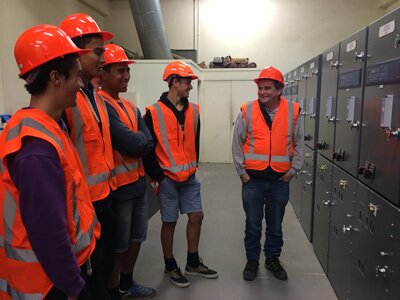
How the initiative evolved
The idea of taking students to visit industry workplaces isn’t new – WECA (Waikato Engineering Careers Association), for example, runs a similar event – but there don’t appear to be many of these schemes operating presently. Early in 2014, Careers New Zealand’s Tairawhiti Career Development Leader Kim Holland organised a Horticulture Industry Big Day Out. Students visited local businesses involved in the primary produce sector, some of which had engineering departments. The success of that event led Kim to organise the Engineering Industry Big Day Out and she is already planning the 2015 Forestry Big Day Out, which will include engineering.
Kim says the Big Day Out was adapted from Western Bay of Plenty economic development organisation Priority 1’s INSTEP (Industry & Schools Training and Enterprise Partnership) programme which connects employers to educators.
Read about Careers New Zealand
Read about Priority 1's INSTEP
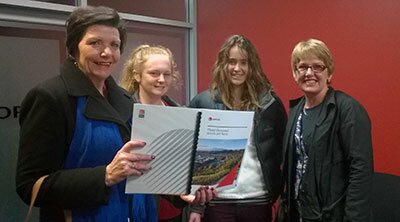
Organising the Engineering Industry Big Day Out
The size of the engineering firms involved, and the type and level of engineering they do, varies. Each group visited three different types of employer, to show students a variety of engineering-related roles and some of the jobs and opportunities available in Gisborne.
Students visiting Opus learnt about engineering careers, with Cadet Chloe Underdown talking about her pathway into engineering, the New Zealand Diploma in Engineering and Opus cadetships. Structural Engineer Thom Clark discussed his role, based on a Bachelor of Engineering (Honours), then took the group on a walk through town to look at some of the structures that engineers have earthquake-strengthened.
At Pultron Composites, students learnt about what the company develops and looked around the process site and engineering workshop. The company mostly employs apprentices, many of whom have trained at EIT (Eastern Institute of Technology).
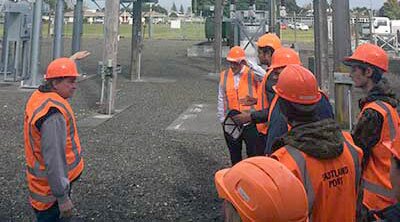
What happens after the big day?
While an industry visit is valuable in itself, an important aspect of the day is the follow-on learning:
- Students might:
- Do further research on the industry and engineering careers
- Organise work experience or apply for a Gateway placing
- Subject teachers might:
- Consider the industry application of their subject and any aspects they could incorporate into a Technology, Maths or Science lesson, making it ‘real’ for the students
- Think about using case studies, field trips, guest speakers or site visits to connect industry with the classroom.
- Careers advisers can:
- Gain a better understanding of the different types of jobs available in the industry
- Understand the breadth of engineering, the different roles and career pathways
- Appreciate that people can move from a trades qualification through to a diploma or degree.
- Employers can:
- Future-proof their business – looking at ongoing employment of apprentices through to professional engineers, planning around an aging workforce
- Talk to potential future employees about the qualifications and skills they require.
From the Careers New Zealand perspective, Kim says, the day was about connecting employers with future potential employees. “Maybe there will be work experience, scholarships, summer work for tertiary students - and potentially a job at the end of it. It’s not guaranteed, but some employers are looking at these things.”
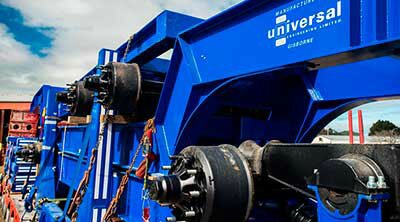
The practicalities
The beauty of this type of initiative is that it’s easily modified to suit a particular region or industry. “Gisborne was very supportive,” says Kim, “especially as there was an existing need. Employers wanted to connect with schools and vice versa, but didn’t know how to do it.”
The cost wasn’t huge, she says, and was spread between organisations. Students travelled between sites in school vans (a local trust had funded buses for the Horticulture Industry Big Day Out). Morning/afternoon tea for students was usually provided by the company they were visiting, and EIT’s School of Trades and Technology hosted lunch for the Engineering Day.
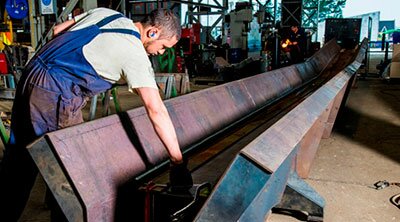
The employer perspective
Phil Matthews, Director at Universal Engineering, says that the day was definitely successful, with enthusiastic students and the support of the schools. He explains why his firm became involved: “We believe as an industry we need to encourage young, educated people into the trades and other engineering roles. We wanted to get behind the schools and training organisations to encourage them to produce trainees of a reasonable calibre. The Big Day Out highlights the good career path in the engineering trades, which are often portrayed as dirty jobs. We’re a big employer of tradespeople and this was a chance to give back.”
While promoting engineering, the day also provides good publicity for the participating companies. Thom notes that Opus didn’t have much to gain immediately, as the Gisborne office didn’t need a lot of apprentices or cadets, but there are opportunities for young people throughout the company and it’s another way to recruit professional engineers further down the track.
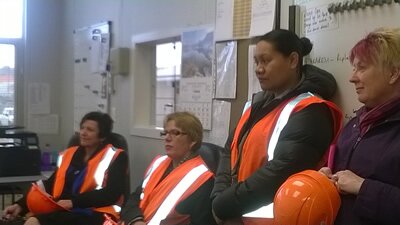
Interested in being part of a similar event?
Brad Kopua, Engineering Manager at Pultron Composites, encourages other employers to get involved in this sort of activity. “In the engineering industry it can be difficult to recruit and hang on to decent people. Looking for tradespeople in Gisborne is almost impossible – there wasn’t enough training of apprentices in the past and so there aren’t enough young people coming through to replace what is an aging workforce. We’ve lost a lot of our tradespeople to overseas or other industries.”
He recommends that employers give school groups a good look around, explain things well and answer questions. Brad and Phil both advise anyone hosting school visits to keep the groups small – no more than 10 to 12 students – so that everyone gets an opportunity to ask questions and inspect things closely.
Many of the students were already interested in engineering as a career, and the industry visits confirmed their decision. Thom comments that a few Year 12 girls who hadn’t previously considered engineering were inspired, as a result of their visits, to think about working towards a job in the industry. He looks forward to interacting with younger students who haven’t yet decided what they want to do.
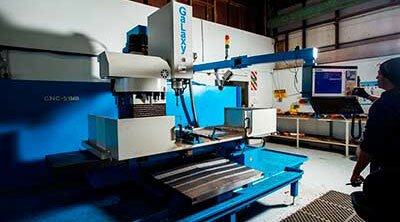
If you’d like to find out more about the Engineering Industry Big Day Out, contact:
Kim Holland: .
Universal Engineering: Phil Matthews, , www.unieng.co.nz
Pultron Composites: Brad Kopua: , http://www.pultron.com/
Opus International Consultants: http://www.opus.co.nz/contact-us/
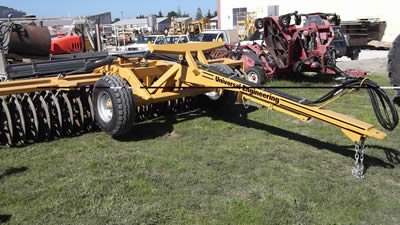
If you have any other questions, get in touch: .
November 2014
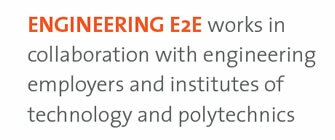 |
 |
 |
||
 |
||||
 |
||||
 |

